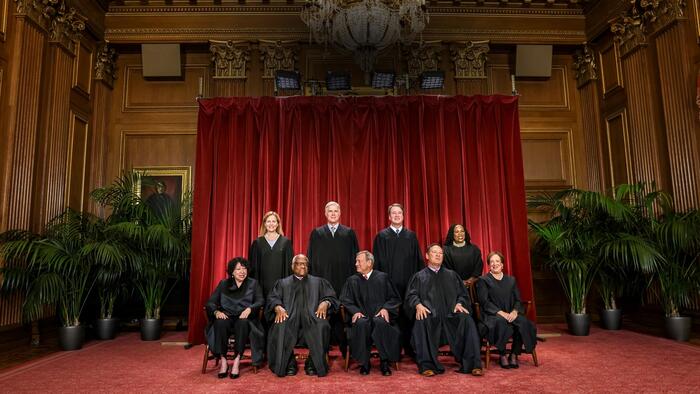The Supreme Court is set to convene for its 2024–2025 term on October 7, following a consequential year that involved significant rulings impacting various contentious issues. Among the petitions accepted are cases touching on gender, immigration, ghost guns, e-cigarettes, and pornography—all prominent topics in contemporary legal discourse. As the new session approaches, it may also see the revival of legal questions stemming from the previous term, particularly those that involve former President Donald Trump, as his legal challenges continue to unfold in various courts.
Trump’s legal matters could potentially return to the Supreme Court, especially regarding rulings from Trump v. United States, which clarified presidential immunity, and Fischer v. United States, which dealt with obstruction charges connected to January 6. Trump’s legal team has indicated plans to contest components of his indictments based on these previous rulings, setting up possible appeals that could shape the Court’s approach to presidential powers and accountability. Trump also intends to challenge the legality of Special Counsel Jack Smith’s appointment. This situation presents the Court with a significant constitutional dilemma, especially if conflicting rulings from different circuits arise, which often prompts Supreme Court intervention to resolve such disputes.
As these legal battles evolve, calls for Supreme Court reform from Democrats are expected to intensify, regardless of who wins the upcoming presidential election. Proposals include term limits and stricter ethics regulations for justices, reflecting continued public concern regarding the Court’s legitimacy and its decisions on sensitive societal issues. Recent polling suggests some reform ideas have gained traction, although the more radical option of expanding the Court’s size remains unpopular. Additionally, the existing lack of an effective enforcement mechanism for judicial ethics has provoked discussion among justices themselves regarding accountability, particularly concerning high-profile figures like Samuel Alito.
On the gun rights front, the Court will hear a significant case, Garland v. VanDerStok, challenging regulations regarding ghost guns, which are untraceable firearms lacking serial numbers. This case arrives in the context of broader legal questions about the authority of agencies like the Bureau of Alcohol, Tobacco, Firearms, and Explosives (ATF) to interpret existing laws. Additionally, the Court has previously struck down ATF actions under a separate case regarding bump stocks, underscoring the judiciary’s scrutiny over agency regulations in the realm of firearms. Other potential gun-related cases include challenges to Maryland’s assault weapons ban and the implications of U.S. gun companies’ actions on the Mexican drug cartel situation.
The Supreme Court’s agenda also includes crucial public health challenges, particularly concerning pornography and e-cigarettes. The Court will address the FDA’s decision regarding flavored e-cigarettes and Texas’s age verification law for pornographic websites. Both cases can have significant repercussions on First Amendment rights as well as industry standards concerning youth access to potentially harmful products. The resolution of these cases will likely set precedents for how states and federal agencies regulate these areas, highlighting the intersection of public health, commerce, and constitutional protections.
Lastly, significant attention will be placed on gender-related legal challenges, chiefly the Biden administration’s lawsuit against Tennessee’s law banning gender transition procedures for minors. With the potential for far-reaching implications on equal protection and discrimination laws, this case embodies the ongoing struggle to define the role of gender within legal frameworks. It also revisits themes that emerged from the landmark Bostock v. Clayton County decision, which provided protections against discrimination based on sexual orientation and gender identity. The Court’s rulings in these upcoming cases will likely contribute to the evolving landscape of American law concerning gender rights and protections, impacting everything from educational policies to public health determinations.
Overall, the upcoming Supreme Court term promises to be a pivotal one, addressing crucial issues that have significant implications for constitutional law, public policy, and individual rights. As legal battles continue to unfold, the decisions made in this term may redefine longstanding precedents and reshape the jurisprudential landscape of the United States.

